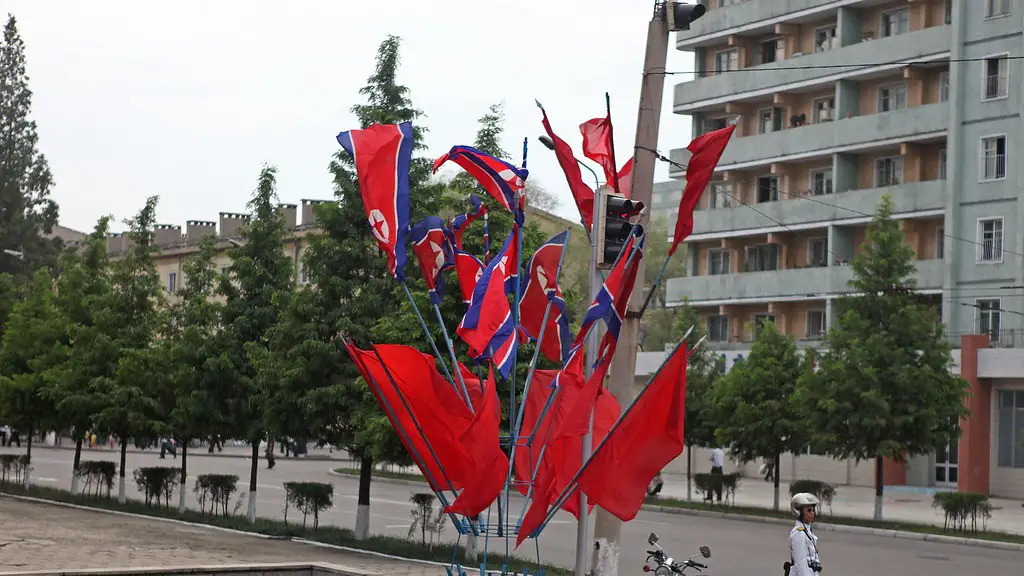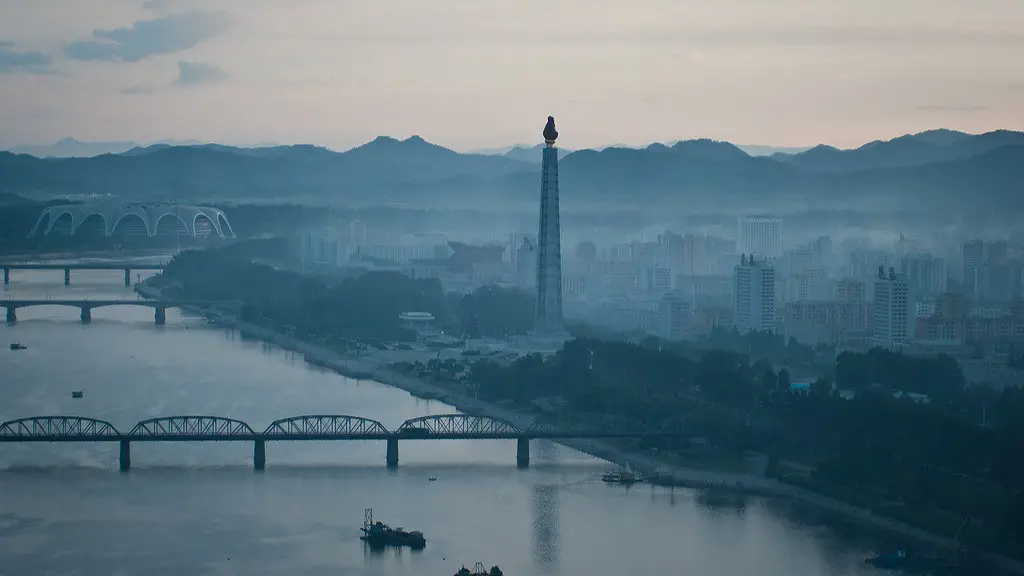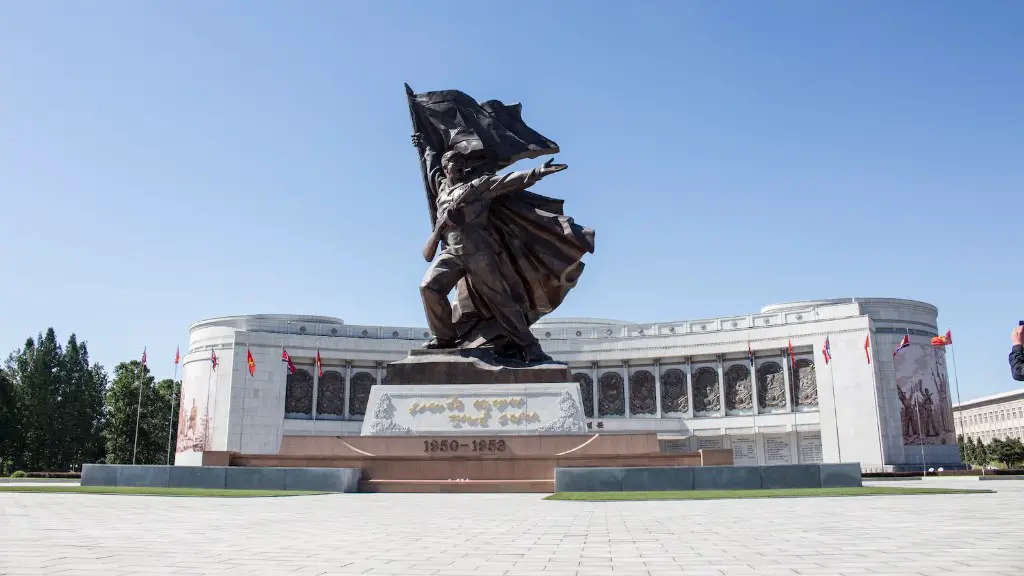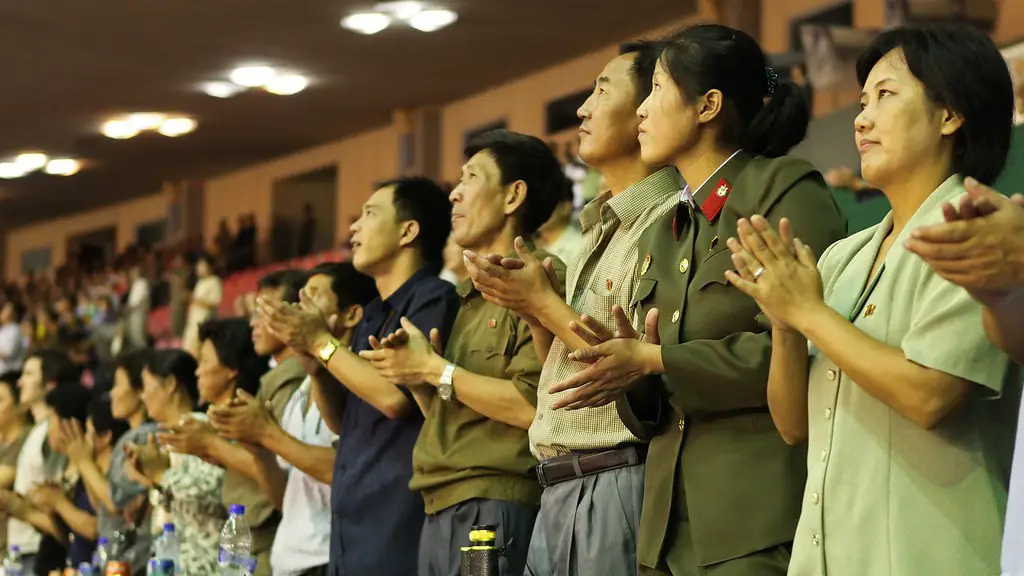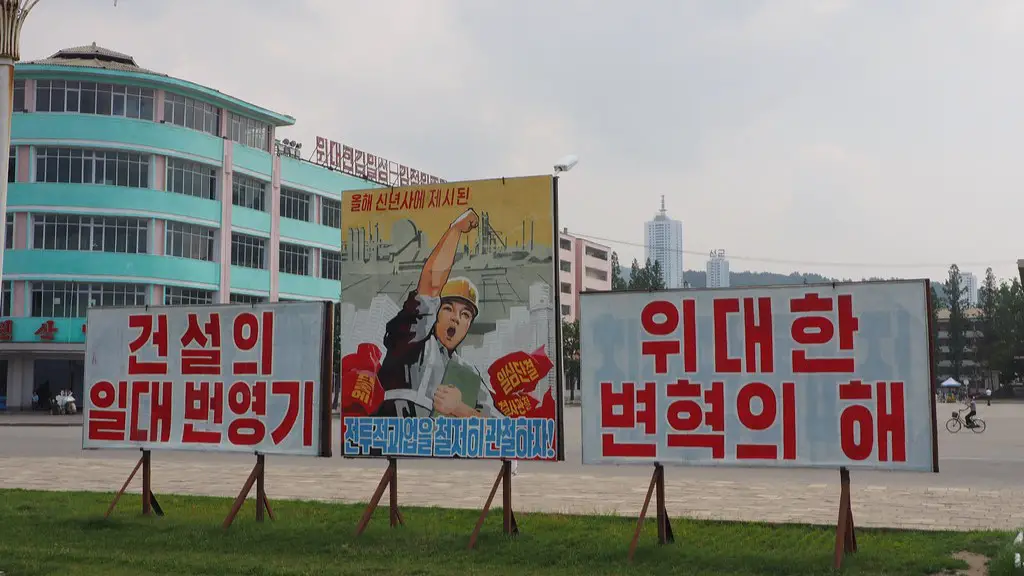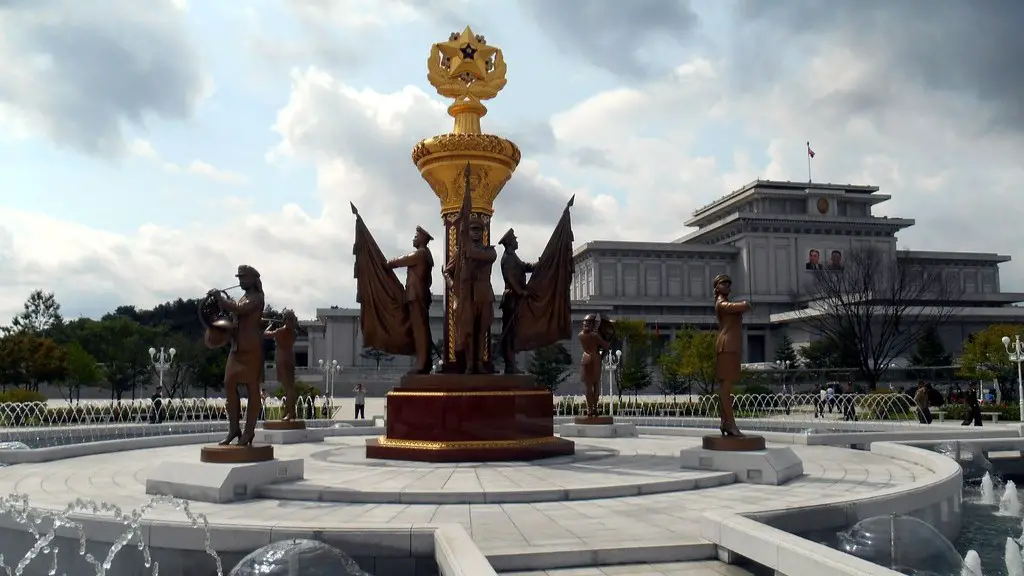North Korea is a reclusive country with a totalitarian dictatorship and a track record of human rights violations. The nation is largely shrouded in mystery to most of the world and its people follow strict guidelines and regulations. North Korea has some of the strangest rules in the world that impact all aspects of life within its borders. Everyone living in North Korea is expected to adhere to these rules or face imprisonment or even death. Let’s take a look at some of the weird rules that people must follow in North Korea.
No Public Gatherings
One of the most prominent rules in North Kore is a ban on public gatherings. All public events require authorization from the government and are heavily regulated and monitored. Any disruption or voicing of dissent in public can lead to arrest and imprisonment. The government maintains a tight control over all aspects of public interaction, and citizens must be careful about what they say and do in front of other people.
North Korea also implements harsh censorship laws, requiring all citizens to use government-approved media channels, such as state-run newspapers and television stations, which are designed to reinforce government propaganda. All foreign media, publications, and websites are strictly prohibited in North Korea and those caught accessing them can face serious consequences.
No Leaving North Korea without Permission
Another strange rule in North Korea is the requirement to obtain permission from the government before travelling outside of the country. For most citizens, this is an impossible task as the government generally does not grant permission for ordinary citizens to leave the country. This rule is enforced through strict surveillance and harsh punishments for those who attempt to flee the country without permission.
Those who are granted permission to leave the country must undergo rigorous investigations and questioning before they are allowed to go, and they must also deposit all their personal documents, including passport and ID cards, with the government before they go. All passport holders are also subject to strict monitoring while travelling abroad, and must abide by the laws and regulations of their host country.
No Religious Practices
North Korea is officially an atheist country and bans all forms of religion and religious practices. This means that all churches and other places of worship are forbidden and religious activities or gatherings, such as church services, are banned. Anyone caught engaging in religious activities can be arrested and imprisoned, and some have even faced execution for their religious beliefs.
Most North Koreans are not religious and practice atheism, however there is still a small minority of citizens who practice Christianity and other religions clandestinely, often at great risk to themselves. Penalties for religious practices are severe and members of the clergy are regularly arrested and prosecuted for their beliefs.
No Refusal of Gifts from the Leader
The leader of North Korea, Kim Jong-un, is a deified figure in the country and citizens are expected to show him the utmost respect and loyalty. One bizarre rule is that citizens are not allowed to refuse gifts that are given to them by the leader. This is seen as a sign of disrespect and can be met with imprisonment or even death.
All North Korean citizens are expected to take part in public displays of loyalty to the leader, such as rallies and parades, and they are encouraged to wear clothing and accessories that bear his image. Those who fail to demonstrate the correct amount of respect and loyalty to the leader can face severe punishment.
No Michael Jackson Impersonations
In North Korea, impersonations of famous celebrities, especially American ones, are strictly illegal. In particular, one of the most famous musicians of all time, Michael Jackson, is forbidden. It is illegal to imitate Michael Jackson’s movements, style of dress, and singing in North Korea, and violators of this law can face arrest and imprisonment.
North Korea is also known to employ strict online censorship, blocking access to any foreign websites, including those associated with Michael Jackson. Anyone caught accessing these sites can face severe repercussions, including imprisonment and even death.
No Possession of Western Media
The North Korean government strictly forbids the possession of foreign media, including books, magazines, movies and music. All media in North Korea is heavily censored and is either produced or approved by the government. Any foreign media discovered in the possession of citizens can lead to arrest and severe punishment, so citizens must be careful about what they buy, read and watch.
No Criticizing the Leader
Criticizing the leader is one of the most serious offences in North Korea and can result in death or said punishment. North Koreans are expected to show the utmost respect and loyalty to the leader at all times, and those who dare to express dissenting opinions can face arrest and imprisonment. All public media outlets must also adhere to the edicts of the leader and any criticism of him is strictly forbidden.
The North Korean government also monitors all communication and activities of its citizens, including emails and phone calls. Any form of public dissent, either online or in person, can lead to arrest and severe punishment, so the citizens of North Korea must be careful about what they do and say.
No Displaying Foreign Flags
The North Korean government forbids the display of foreign flags and insignia in public. This rule applies to all citizens as well as foreigners visiting the country, and anyone caught breaking this rule can be arrested and detained. The government has a zero-tolerance policy for foreign flags and considers it an act of insubordination or treason.
The North Korean government also employs strict surveillance methods and utilizes security cameras to monitor public places and ensure that the law is being enforced. Punishments for those who break the rules vary depending on the severity of the offence, however most cases result in indefinite detention, imprisonment, or death.
No Denouncing the Government
One of the most serious offences in North Korea is denouncing the government or its policies. This can be done verbally or in writing and can result in arrest and imprisonment. North Korean citizens are not allowed to express any opinion or sentiment that is perceived to be critical or negative towards the government, and any attempts to do so can lead to severe retaliation and punishment.
North Korean authorities are known to be extremely heavy-handed when it comes to dissent, and even the slightest deviation from the government’s official stance can lead to arrest and imprisonment. There have been numerous cases of citizens being prosecuted and punished for saying or writing anything that is deemed to be critical of the government, and even those who are merely perceived to be silently criticizing the regime can face harsh consequences.
No Listening to Western Music
North Korea has a ban on all Western music and any forums, such as concerts, where Western music is performed or broadcast, are strictly prohibited. Playing or listening to Western music in North Korea is seen as a serious offence and can result in arrest and indefinite detention. Even possessing recordings of Western music is strictly forbidden, and anyone caught with such material could face harsh penalties.
The North Korean government is extremely strict about what music its citizens can listen to, and all music that is broadcast on the official state-run media is approved and regulated by the government. All music must follow the government’s guidelines and cannot contain any lyrics or messages that oppose or criticize the government in any way.
No Romantic Relationships with Foreigners
North Korean citizens are forbidden from having any romantic or sexual relationships with foreigners. This rule applies to both sexes and is strictly enforced. Any North Koreans caught engaging in intimate relationships with foreigners can face arrest and indefinite detention. Even those who just befriend foreigners can be seen as suspicious and can be subjected to scrutiny from the government.
North Korea is an extremely reclusive state and any interaction with outsiders is strictly regulated and monitored by the government. The only foreign nationals who are allowed to enter the country are diplomats, aid workers and journalists, and their movements and activities are closely monitored to ensure that the country’s security is not compromised.
